The Government has just issued Decree No. 29 regulating staff streamlining, effective from July 20, 2023.
The Decree clearly stipulates 3 groups of cadres, civil servants and public employees subject to the policy of streamlining payroll.
The first group is cadres, civil servants, public employees; commune-level cadres, civil servants and people working under indefinite-term labor contracts in administrative agencies are subject to the same regimes and policies as civil servants according to Government regulations, if they fall into one of the following eight cases.
One is that cadres, civil servants and public employees are being disciplined but not to the extent of being dismissed or forced to quit according to the provisions of law at the time of considering streamlining the payroll, individuals voluntarily carry out streamlining the payroll, with the consent of the agency, organization or unit directly managing them.

(Illustration photo).
Second, there is a surplus due to review and rearrangement of the organization and personnel according to the decision of the competent authority or a surplus due to the public service unit rearranging the organization and personnel to implement the autonomous mechanism.
Third is the case of surplus due to the rearrangement of administrative units at district and commune levels according to the decision of competent authorities.
Fourth, there is a surplus due to restructuring of cadres, civil servants and public employees according to job positions, but they cannot be arranged or assigned to other jobs, or they can be arranged to other jobs but the individual voluntarily reduces the payroll and is approved by the agency, organization or unit directly managing them.
Five is the case of not having achieved the training level according to the professional and technical standards prescribed for the current job position, but there is no other suitable job position and cannot be arranged for retraining or the agency arranges another job but the individual voluntarily implements staff streamlining and is approved.
Sixth, in the case of two consecutive years at the time of considering streamlining the payroll, the cadre, civil servant, or public employee has one year of quality classification at the level of completing the task and one year of not completing the task but cannot be assigned to other suitable jobs.
In the previous year or in the year of reviewing and implementing the staff reduction, the quality was classified as completing the task or below, but the individual voluntarily implemented the staff reduction and was approved.
Seven is the case where there are 2 consecutive years at the time of considering streamlining the payroll, in each year the total number of days off work is equal to or higher than the maximum number of days off due to illness as prescribed, with confirmation from the Social Insurance agency paying sickness benefits according to current regulations of law.
In the previous year or in the year of considering streamlining the payroll, the total number of days off work is equal to or higher than the maximum number of days off due to illness as prescribed, with confirmation from the paying social insurance agency, the individual voluntarily conducts streamlining the payroll and is approved.
Eight are cadres, civil servants, leaders and managers who cease to hold positions and titles due to the reorganization of the apparatus and administrative units according to the decision of competent authorities, individuals who voluntarily implement staff streamlining and are approved.
The second group is people working under an indefinite-term labor contract performing professional and technical jobs in the list of specialized job positions and specialized job positions used in common in public service units that are redundant due to organizational rearrangement or restructuring of the unit's human resources.
The third group is non-professional workers at the commune level who are redundant due to the rearrangement of commune-level administrative units and non-professional workers at the village and residential group levels who are redundant due to the rearrangement of villages and residential groups when rearranging commune-level administrative units and who have retired within 12 months from the date of the rearrangement decision by the competent authority.
The Decree clearly stipulates policies on streamlining the payroll: Policy on early retirement; policy on transferring to work at organizations that do not receive regular salaries from the state budget; policy on termination of employment; policy on early retirement for commune-level cadres and civil servants who are redundant due to the rearrangement of commune-level administrative units with an age lower than the maximum of 10 years and lower than the minimum of 5 years compared to the retirement age as prescribed by the law on social insurance.
At the same time, regulations on policies for subjects of streamlining redundant staff due to the rearrangement of administrative units at district and commune levels from the time of the rearrangement decision of the competent authority until before the end of the rearrangement roadmap...
English
Useful
Emotion
Creative
Unique
Source


![[Photo] General Secretary To Lam receives US Ambassador to Vietnam Marc Knapper](https://vphoto.vietnam.vn/thumb/1200x675/vietnam/resource/IMAGE/2025/9/29/c8fd0761aa184da7814aee57d87c49b3)


![[Photo] Many streets in Hanoi were flooded due to the effects of storm Bualoi](https://vphoto.vietnam.vn/thumb/1200x675/vietnam/resource/IMAGE/2025/9/29/18b658aa0fa2495c927ade4bbe0096df)
![[Photo] General Secretary To Lam attends the ceremony to celebrate the 80th anniversary of the post and telecommunications sector and the 66th anniversary of the science and technology sector.](https://vphoto.vietnam.vn/thumb/1200x675/vietnam/resource/IMAGE/2025/9/29/8e86b39b8fe44121a2b14a031f4cef46)
![[Photo] General Secretary To Lam, Secretary of the Central Military Commission attends the 12th Party Congress of the Army](https://vphoto.vietnam.vn/thumb/1200x675/vietnam/resource/IMAGE/2025/9/30/9b63aaa37ddb472ead84e3870a8ae825)





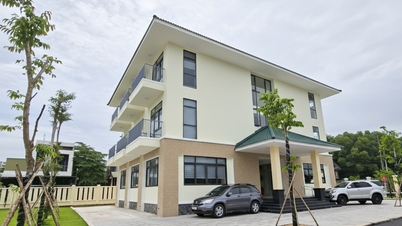
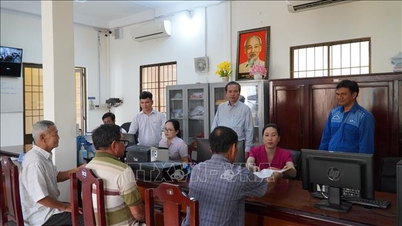
















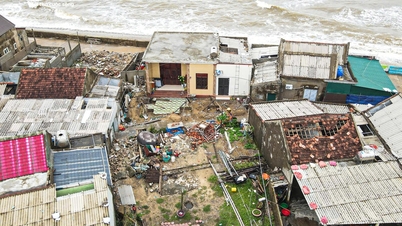



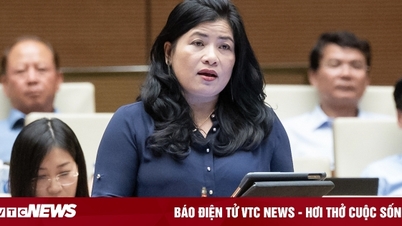

![[Photo] National Assembly Chairman Tran Thanh Man chairs the 8th Conference of full-time National Assembly deputies](https://vphoto.vietnam.vn/thumb/1200x675/vietnam/resource/IMAGE/2025/9/29/2c21459bc38d44ffaacd679ab9a0477c)





































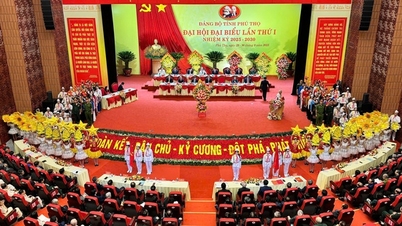







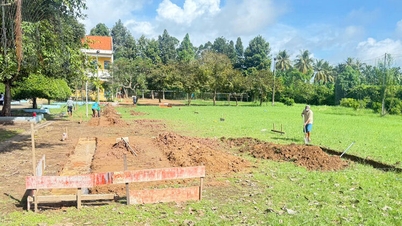


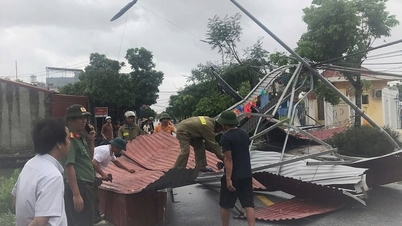














Comment (0)